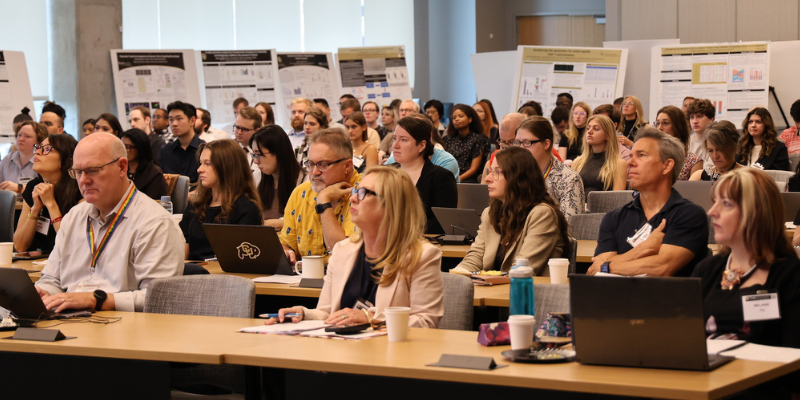Peter Anderson, PharmD, professor and Director of the Pharmaceutical Sciences Graduate Program, was named the 2020 recipient of the John and Barbara Shell Prize in Research and Graduate Education, the highest honor given by the University of Colorado Skaggs School of Pharmacy and Pharmaceutical Sciences. Initially started in 2002 as an annual award, this distinction is now presented every two years for outstanding achievement in research and graduate education. A committee of past recipients selects the recipient from among tenured professors in CU Pharmacy.
Anderson says the highest honor is being selected from a committee of his peers.
“That was the biggest honor of the whole award,” he said, “was that it came from my peers, and people I admire. That was extra special. It’s a pinnacle of your career to be recognized by your peers.”
Anderson has a long history with CU Pharmacy, coming to the school after a three-year post-doctoral research fellowship in 2002. His research interests include antiviral drug pharmacokinetic-pharmacodynamic relationships in humans, using drug concentrations to assess adherence to antiviral therapies, and new assays for drug/metabolite quantification in unique compartments in humans.
Most notably, Anderson’s work in the Colorado Antiviral Pharmacology Laboratory at CU Pharmacy led to the development of a blood test for the effectiveness of the HIV prevention drug Truvada (a combination of tenofovir/emtricitabine), one of the drugs commonly known as pre-exposure prophylaxis or PrEP. The test is now industry standard in HIV research and has had widespread potential for other drugs that require objective measurement of patient adherence to dosing. The technique measures for traces of antiretroviral drugs in dried blood spots to estimate how much of the pre-exposure prophylactic (PrEP) medication a patient has used. With the development of this test, researchers now know that when taken daily, PrEP is 99% effective at reducing the spread of HIV, a fact highlighted on the Centers for Disease Control and Prevention website.
Anderson is unique in that his formal training is in clinical pharmacy, but through a series of both happenstance and a personal interest in HIV research, he has created what he calls a very fulfilling career. Anderson joins past Shell award recipients Vasilis Vasiliou, PhD, and Manisha Patel, PhD.
The late John Shell, BS ’53, PhD ’54, and his wife, Barbara, BS ’51, established the Shell Prize to recognize research that brings together the best of academic pursuit and industry application.
“I saw the need to bridge that gap and create communication between the two worlds,” Shell previously said, “because only good things can occur when the two start cooperating.”
Anderson, with his work in HIV, has certainly bridged that gap.



